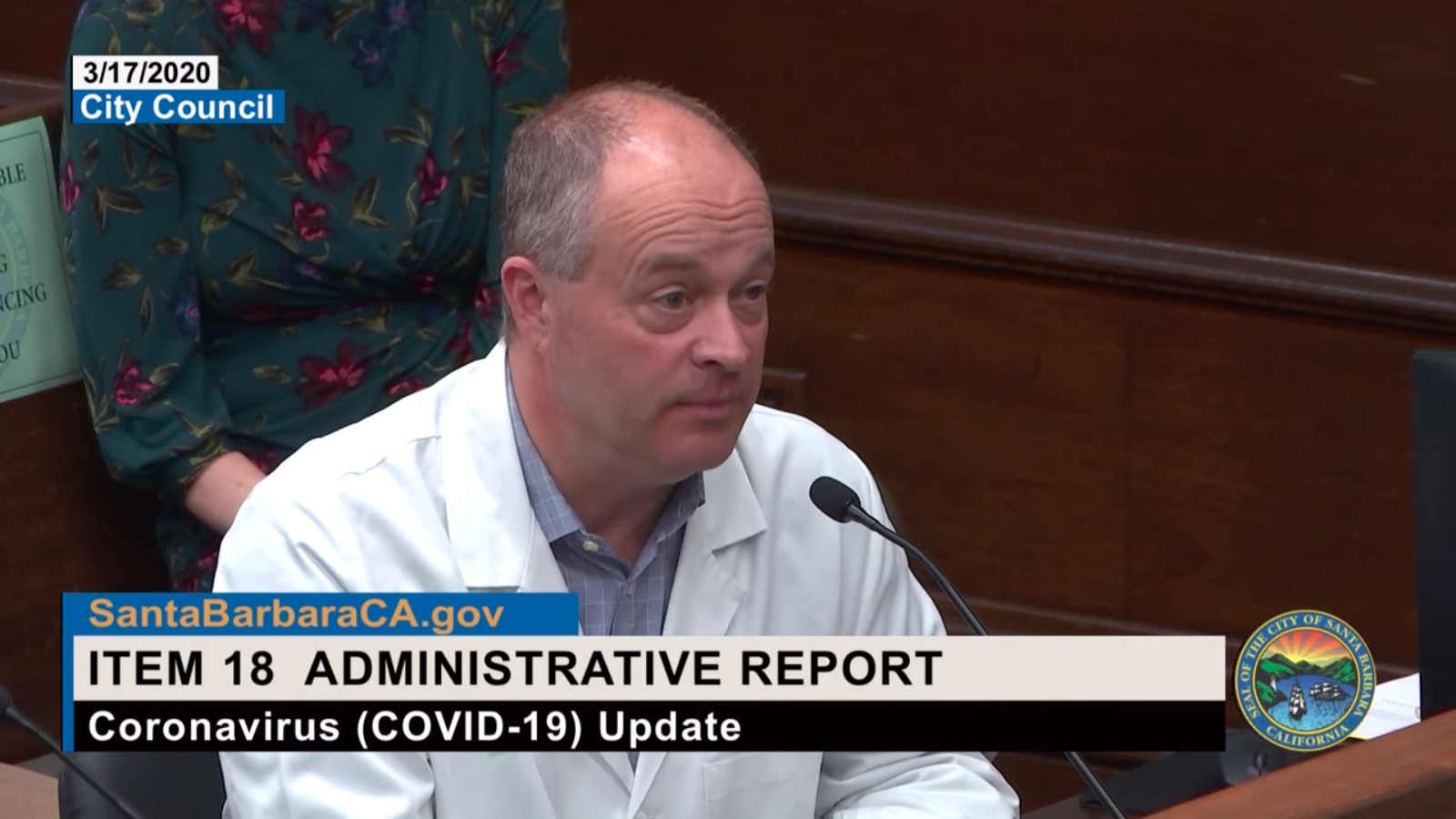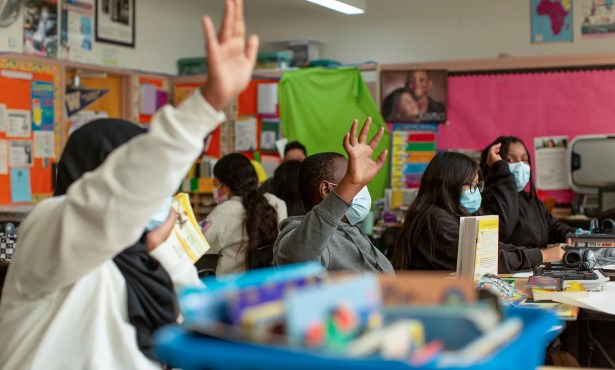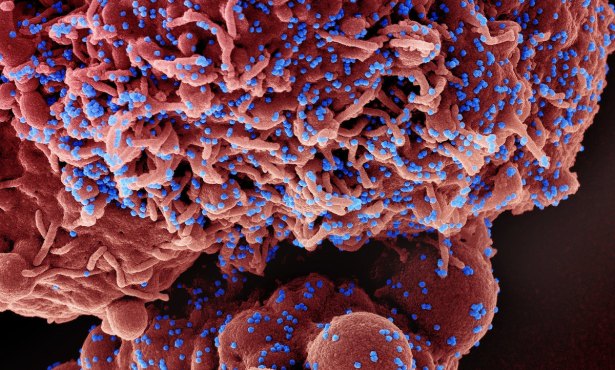‘The Virus Is Running Rampant’ in Santa Barbara County
Cottage Health’s Dr. David Fisk Runs Down the Things to Do to Avoid Coronavirus This Fourth of July and Beyond

When asked to rate clinicians’ concern about COVID on a scale of 1 to 5, Dr. David Fisk replied, “It’s at a 10.” Fisk, the chief infectious disease physician for Cottage Health, then added, “The storm clouds are gathering. The virus is running rampant. It’s increasing very rapidly to the point where positive rate numbers are approaching 1 out of 10. That’s dramatically higher compared to our 1 out of 100 positivity rate just a month ago.”
In Santa Barbara County, that the highest number of new cases were in Santa Maria was nothing for South County residents to feel comfortable about, Fisk added. “There’s a very hot, active process of disease occurring in South County as well.”
Raising the alarm level for doctors and nurses is the three-day Fourth of July holiday — which starts tomorrow — customarily celebrated with family and friends in big backyard barbecues. “We’ve had disease clusters associated with barbecues and bonfires in Santa Barbara County and nationally,” Fisk said. The Fourth comes amid escalating case counts three to four weeks after the Memorial Day holiday, which saw scads of people enjoying the beaches, parks, and trails.
Get the top stories in your inbox by signing up for our daily newsletter, Indy Today.
“COVID is so active in our community right now that people of all ages are getting sick,” Fisk went on. “If you’re within six feet of someone who doesn’t live within your walls, you should stay a physical distance away and wear masks.” Though the risk situation was especially critical for older individuals — parents and grandparents — “Young people still die of this disease,” he said.
Fisk spends most of his days in Cottage’s critical care unit. Early in Santa Barbara’s COVID experience, his was a cool, level-headed voice advocating strong infection measures once they became necessary, but not prematurely; testing when tests became available; building the inventory of protective gear for the inevitable rise in cases. Now he’s seeing critical illness in people of all ages who require ICU care at all levels. “Most patients come to the hospital because they have difficulty breathing from not enough oxygen getting into the bloodstream from the lungs,” he explained. Other serious complications can occur, the doctors have discovered over the past months, including blood clots.
“Clots in the heart make it hard for the heart to pump blood. They can form in the legs and move to the brain or lungs, causing strokes or making it harder to breathe.” Recovery from a stint in the ICU or on a ventilator is difficult for any patient. “Weakness of the muscles arises very rapidly,” the doctor ran down, “as well as impairments to mobility, function, and coordination.” He said almost any illness that required ICU care created significant issues of PTSD (post-traumatic stress disorder) for patients.
As the virus spread from the lungs, it infects many parts of the body with lingering damage. “We are only now learning more about complications that develop, including neurological problems,” Fisk said.
What that all means for the long weekend and beyond is that coronavirus is yet to be behind us. The activities that put people most at risk are those that include close contact for more than 15 minutes. “Striding past someone on the sidewalk, even if they’re shedding virus, is not likely to lead to acquiring the virus,” Fisk said. “The majority of cases are acquired in the household, and another source is the workplace. But a significant minority of overall cases have no known source.”
It’s become well-documented that COVID-positive patients show no symptoms for several days, Fisk noted, time during which they are shedding the virus and potentially passing it to others. “You have to remember,” he said of the need to wear face coverings. “You could get it from other people, or worse, you could unwittingly spread it to someone else.”
At the Santa Barbara Independent, our staff is working around the clock to cover every aspect of this crisis — sorting truth from rumor. Our reporters and editors are asking the tough questions of our public health officials and spreading the word about how we can all help one another. The community needs us — now more than ever — and we need you in order to keep doing the important work we do. Support the Independent by making a direct contribution or with a subscription to Indy+.


